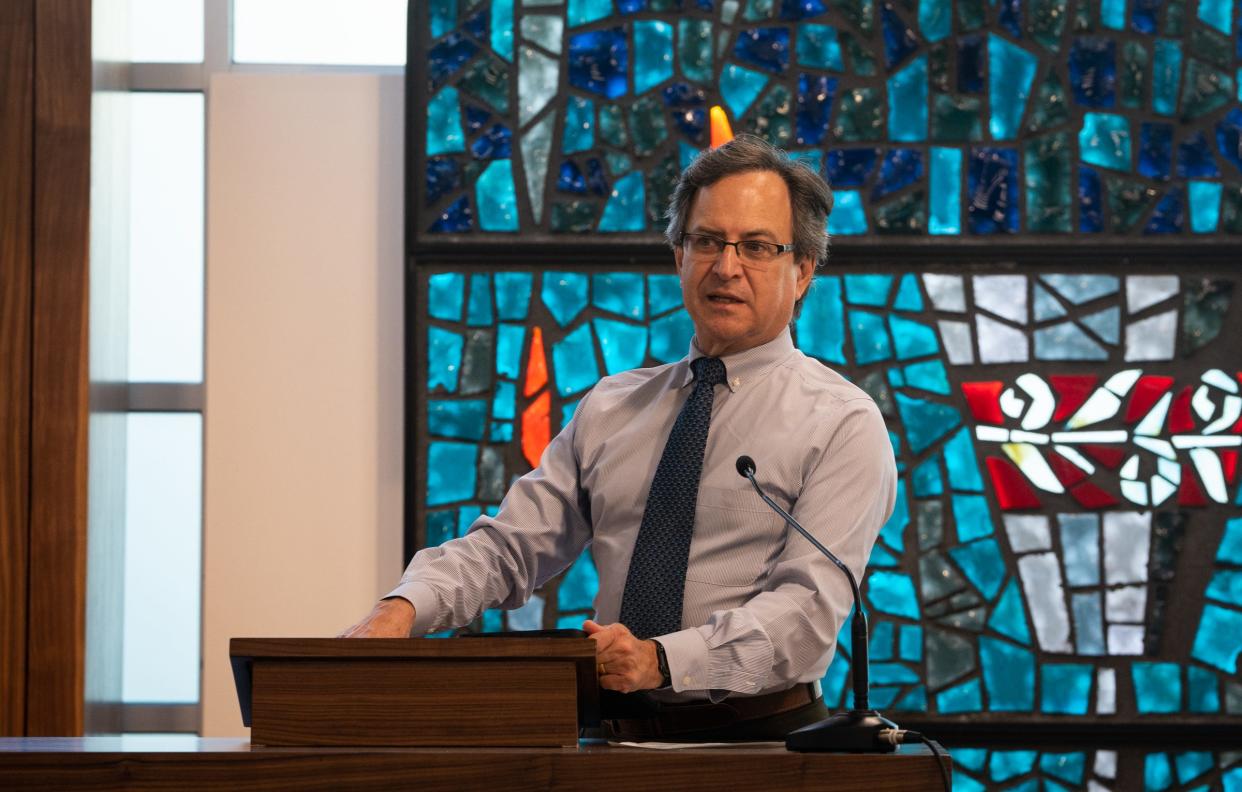Faith: Bringing light to darkness as we gather as a diverse faith community

In Kabbalah, in Jewish mysticism, there is a central book called "The Zohar," which means "the book of light" or "the book of radiance." To a large measure, it and the Kabbalistic tradition, the Jewish mystical tradition, is a play on the story of creation. It really asks questions that the Bible does not deal with: If God made the world and saw that it was good, and at the end of creation, God sees that it is very good, why is there so much suffering? Why so much hatred? Why do we inflict so much unnecessary pain on each other?
It says that in the first phase of creation, God withdraws into God's self to make room for the cosmos. Then God pours this light of the divine presence back into that space that has been created. There are vessels prepared to hold this sacred light, but something goes wrong, and the vessels shatter.
In creation and in the world that we know, there are both sparks of this divine light and the broken shells of the vessels that were there to hold the light. It is our task as human beings to look, even in the most unlikely places, for those "nitzotot," which is the Hebrew word for those sparks, to redeem them and send them back to God.
When Jews say "tikkun," to mend the world, this is part of what we're talking about — looking for glimmers of light even in the most unlikely places, redeeming them and repairing the world.
There were originally five glass panes over the wooden doors of Congregation Beth Israel's sanctuary when the fire was set at those doors on Oct. 31, 2021. Now there are three. The two lowest ones on each side were so close to the heat that engulfed our doors, the glass was ruined beyond use. So, we came up as a collective and as clergy with this idea that we would create an eternal light that, at least in part, was comprised of those pieces of glass. Not only taking a very dark time and creating something that would radiate light but also finding the light within the darkness.
Finding light in darkness: Austin's oldest Jewish congregation marks 2 years since hate-fueled arson
Even in terrible darkness, there is the possibility of finding light: the light of compassion, the light of competence, the light of devotion, the light of courage that enables anybody to eagerly run toward a burning fire and use their expertise to take care of it. That is something really incredible: finding light and returning it.
At their best, all of our religious traditions, as well as the principles of humanism, emphasize the idea that beyond all the superficial divisions, all the uniqueness among us, there is unity. Beyond all of the diversity, beyond all the division, there is oneness. Like looking for those divine sparks, we need to look for that oneness.
I want to remind you of what is possible by quickly recalling something that happened in our now unusable sanctuary a good number of years ago. What is now called IACT, the biggest interfaith organization in Austin, had scheduled their annual Interfaith Thanksgiving service. That particular year, as every year, a particular religious community had been chosen to co-sponsor the event. That year, it was one of the Muslim community organizations in town. When the church which was scheduled that year to co-host the event with the Muslim community, learned that there would be Muslim prayer, Maghrib prayer, they pulled the invitation; this was on the Thursday before the Sunday service, saying they cannot have non-Christian prayer on their premises.
Fortunately, a member of our congregation learned of this problem and asked our congregation if we would host this service. We said, of course, that's a no-brainer. So, we agreed to host it.
That year saw the largest attendance ever at an Interfaith Thanksgiving service. I walked out onto that bimah and saw a sea of diversity, people dressed like they were at the United Nations. It was this gorgeous diversity, and I just walked out and said, "Welcome," and people stood up and cheered. That is still possible. We haven't exhausted that. We have a lot of hard work to do, but we can still do it.
Rabbi Steven Folberg has been the Senior Rabbi of Congregation Beth Israel, located in Central Austin, for 32 years. Doing Good Together is compiled by Interfaith Action of Central Texas, interfaithtexas.org.
iACT’s 39th Interfaith Day of Thanks Service & Celebration
3 p.m. Nov. 19
Huston-Tillotson University King-Seabrook Chapel, 900 Chicon St.
Free and family-friendly
Information: interfaithtexas.org.
This article originally appeared on Austin American-Statesman: Interfaith Thanksgiving brings light to darkness

